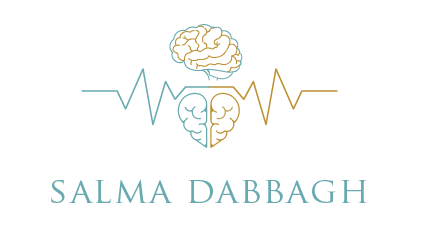EMDR (Eye Movement Desensitization and Reprocessing)
Eye Movement Desensitization and Reprocessing Therapy (EMDR) is a therapeutic approach developed by psychologist Francine Shapiro in the 1980s. It has been used successfully to treat post-traumatic stress disorders (PTSD) and other trauma-related conditions, as well as to address a variety of psychological problems.
EMDR is based on the idea that unprocessed or poorly processed traumatic memories can become trapped in the brain and contribute to emotional and psychological problems. EMDR therapy uses a series of structured protocols and specific techniques to help people process these traumatic memories more adaptively.
EMDR uses bilateral stimulation of the brain hemispheres, usually through eye movements, although it can also be done with tactile or auditory stimulation. The professional guides the patient in performing rhythmic eye movements from one side to the other, which stimulates both hemispheres sequentially. This bilateral stimulation takes place while the person focuses on the traumatic memory or the thoughts and emotions associated with it. It is important to note that bilateral stimulation is only one part of EMDR therapy and is used in combination with other components of the therapy.
EMDR is a specialized therapeutic approach that must be administered by a therapist trained and certified in this technique.

Rational Emotive Behavioral Therapy (REBT)
It was developed by psychologist Albert Ellis in the 1950s. Our emotions and behaviors are influenced by our irrational thoughts and dysfunctional beliefs, and by identifying and changing these thought patterns, we can improve our mental and emotional health.
Cognitive-Behavioral Therapy (CBT)
Cognitive-Behavioral Therapy (CBT) is a type of psychotherapy that focuses on identifying and modifying negative thought patterns and problematic behaviors to address a variety of mental and emotional health problems.
CBT is based on the premise that our beliefs and thoughts influence our emotions and behaviors, and that by changing dysfunctional thinking patterns we can improve our emotional well-being. In addition to cognitive restructuring, CBT focuses on behavior change. This involves identifying problematic behaviors and developing strategies to change them.
CBT is a collaborative-based therapy, where the therapist and client work together to identify and address problems and develop management skills for everyday life.
It is one of the most researched therapies and has been shown to be effective in numerous clinical studies.
Gestalt Therapy
Gestalt Therapy is a dynamic approach that can be beneficial for people who want a more experiential and present-focused therapy. It focuses on individual awareness, the here and now, and personal responsibility. Gestalt Therapy is based on the idea that people can increase their self-awareness and self-acceptance through exploring and understanding their experiences.
Psychoanalityc therapy
Psychoanalytic therapy is based on the theories and methods developed by Sigmund Freud, an influential psychoanalyst of the 19th and 20th centuries. This therapy focuses on exploring and understanding the unconscious processes, internal conflicts, and childhood experiences that can influence a person’s thoughts, emotions, and behaviors.

Cognitive-Behavioral Therapy (CBT)
Cognitive-Behavioral Therapy (CBT): It is a type of psychotherapy that focuses on identifying and modifying negative thought patterns and problematic behaviors to address a variety of mental and emotional health problems.
CBT is based on the premise that our beliefs and thoughts influence our emotions and behaviors, and that by changing dysfunctional thinking patterns we can improve our emotional well-being. In addition to cognitive restructuring, CBT focuses on behavior change. This involves identifying problematic behaviors and developing strategies to change them.
CBT is a collaborative-based therapy, where the therapist and client work together to identify and address problems and develop management skills for everyday life.
It is one of the most researched therapies and has been shown to be effective in numerous clinical studies.

Gestalt Therapy
Gestalt Therapy is a dynamic approach that can be beneficial for people who want a more experiential and present-focused therapy. It focuses on individual awareness, the here and now, and personal responsibility. Gestalt Therapy is based on the idea that people can increase their self-awareness and self-acceptance through exploring and understanding their experiences.

Psychoanalityc therapy
Psychoanalytic therapy is based on the theories and methods developed by Sigmund Freud, an influential psychoanalyst of the 19th and 20th centuries. This therapy focuses on exploring and understanding the unconscious processes, internal conflicts, and childhood experiences that can influence a person’s thoughts, emotions, and behaviors.

